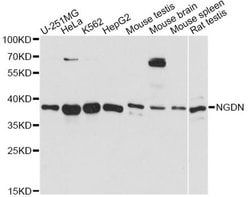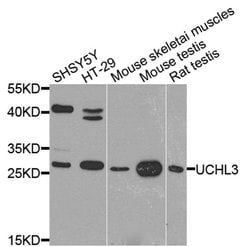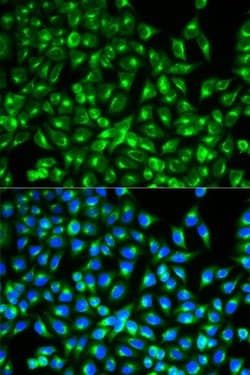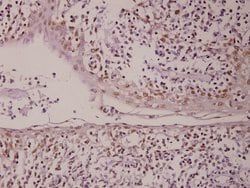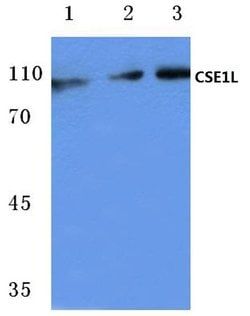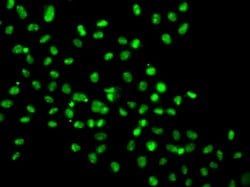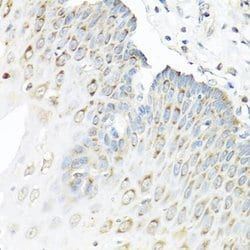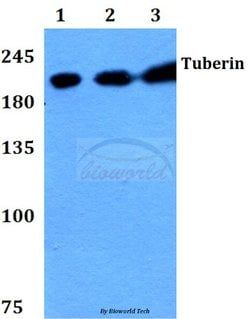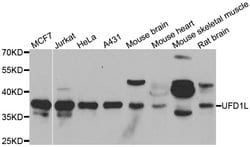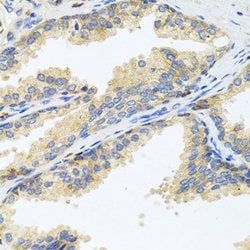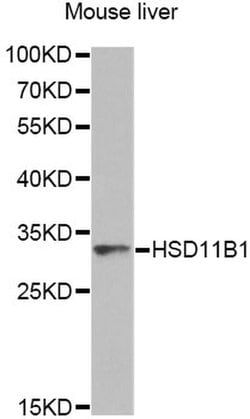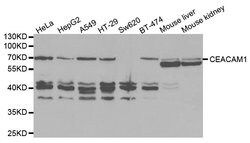UFD1L Polyclonal Antibody, Invitrogen™
Manufacturer: Thermo Scientific
Select a Size
| Pack Size | SKU | Availability | Price |
|---|---|---|---|
| Each of 1 | PIPA587244-Each-of-1 | In Stock | ₹ 49,528.50 |
PIPA587244 - Each of 1
In Stock
Quantity
1
Base Price: ₹ 49,528.50
GST (18%): ₹ 8,915.13
Total Price: ₹ 58,443.63
Antigen
UFD1L
Classification
Polyclonal
Conjugate
Unconjugated
Gene
UFD1
Gene Alias
RGD:619822}, UB fusion protein 1, UB fusion protein 1 {ECO:0000250, ubiquitin fusion degradation 1 like, ubiquitin fusion degradation 1 like (yeast), Ubiquitin fusion degradation protein 1, Ubiquitin fusion degradation protein 1 homolog, ubiquitin fusion degradation protein 1 homolog {ECO:0000250, Ubiquitin recognition factor in ER-associated degradation protein 1, UFD1, UFD1L, ufd1l {ECO:0000312, UniProtKB:Q92890}
Host Species
Rabbit
Purification Method
Antigen affinity chromatography
Regulatory Status
RUO
Gene ID (Entrez)
22230, 7353
Content And Storage
Store at 4°C short term. For long term storage, store at -20°C, avoiding freeze/thaw cycles.
Form
Liquid
Applications
Immunocytochemistry, Immunohistochemistry (Paraffin), Western Blot
Concentration
1 mg/mL
Formulation
PBS with 50% glycerol and 0.02% sodium azide
Gene Accession No.
P70362, Q92890
Gene Symbols
UFD1
Immunogen
Recombinant full length Human UFD1L.
Quantity
100 μL
Primary or Secondary
Primary
Target Species
Human, Mouse
Product Type
Antibody
Isotype
IgG
Description
- Ubiquitin-mediated proteolysis requires the transfer of ubiquitin (Ub) to lysine groups on selected cellular proteins, which then potentiates the proteolytic degradation of these protein conjugates by the 26S proteasome
- Ub-fusions are cleaved by Ub-specific processing proteases (UBps) or alternatively by the Ub-fusion degradation (UFD) pathway
- The UBP pathway targets the C-terminal glycine residue on Ub that is involved in the formation of Ub-conjugates, while UFD proteins preferentially cleave Ub-conjugated proteins that contain an amino acid substitution at this glycine residue
- The UFD1 protein was originally characterized in the yeast S
- cerevisiae and subsequently, the human homolog UFD1 or UFD1L was identified
- In vitro, UFD1 attenuates the degradation of Ub-fusions, which have a proline or valine residue substituted at the Gly76 moiety, by the selective multiubiquitination of the Ub chain of the Ub-conjugate
- Mutations within the UFD1 gene are implicated in the development of CATCH22 syndrome, which is characterized by cardiac defects, cleft palate and hypocalcemia, suggesting that this proteolytic pathway may be involved in the progression of these developmental defects.
